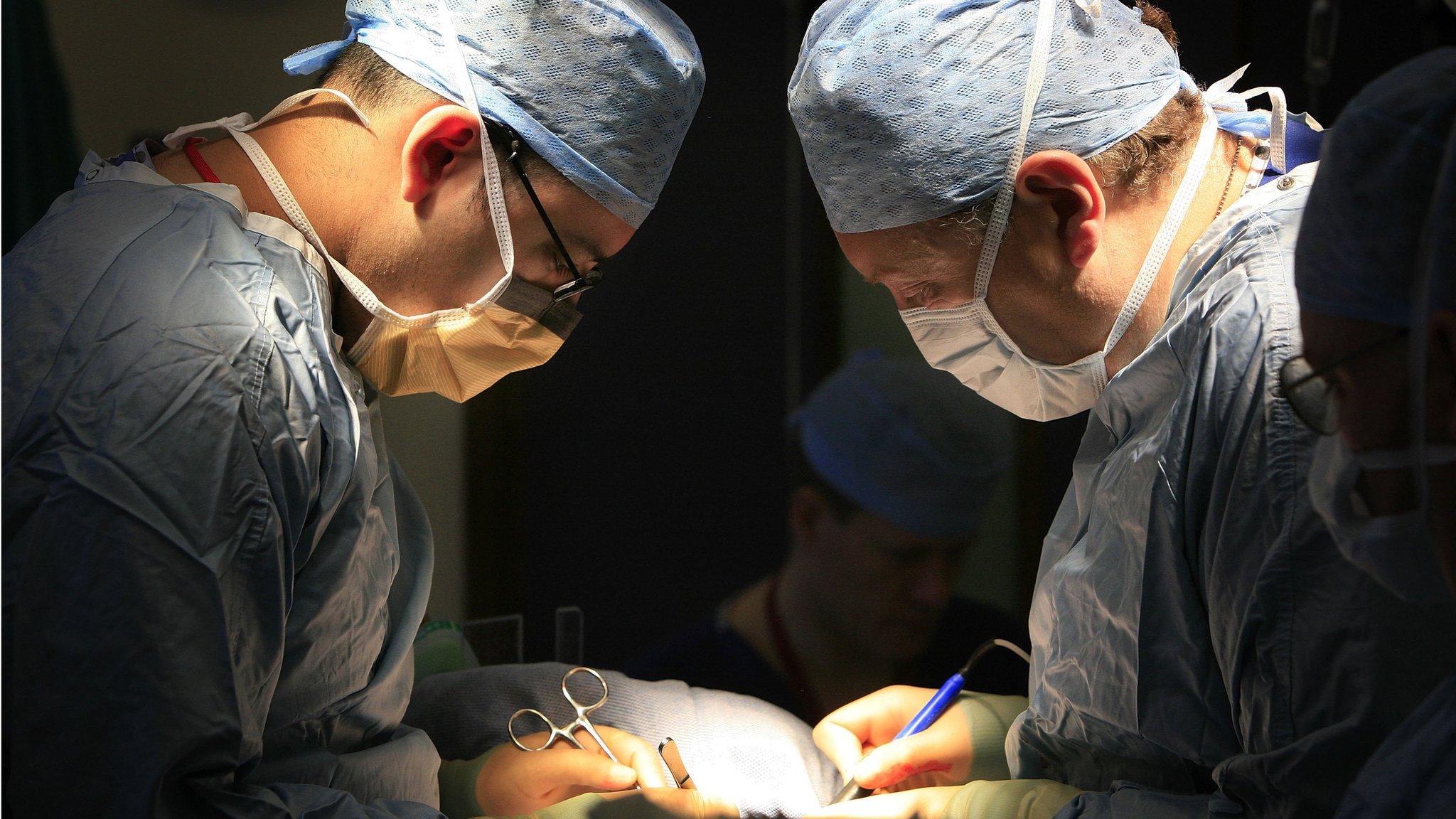MSPs vote to approve opt-out organ donation system
- Published
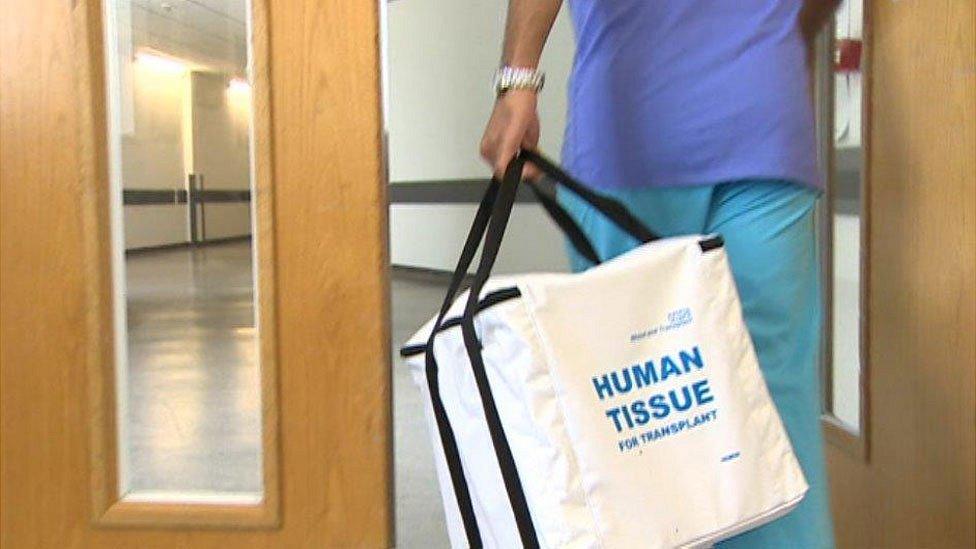
MSPs have voted to approve an "opt-out" system for organ donation in Scotland.
At present, people must "opt in" by registering to donate their organs for transplants after they die.
Under the new system it will be assumed people were in favour of donation unless they have stated otherwise.
Only a handful of MSPs voted against the plans, which Public Health Minister Joe Fitzpatrick said would help contribute to "significant increases in donation and transplantation".
Approximately 550 people in Scotland are waiting for an organ transplant, which could save or transform their lives.
Despite record numbers of people registered to donate, it is hoped the move to an opt-out system - similar to the one adopted by Wales in 2015 - will lead to an increase in available organs.
Families will still be consulted and have the final say under the plans in the Human Tissue (Authorisation) (Scotland) Bill, external.
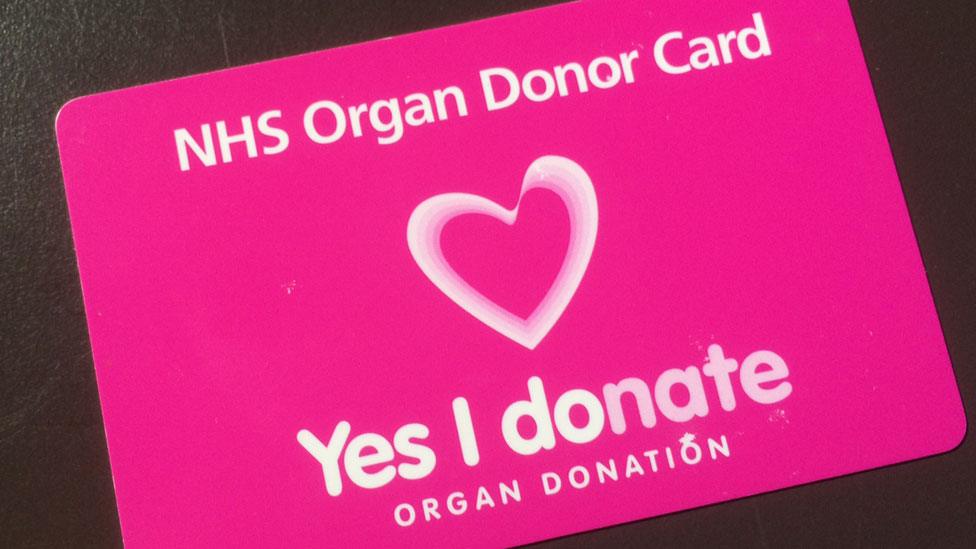
As of July last year, there were 2,724,358 people in Scotland on the UK Organ Donor Register
David McColgan, of the British Heart Foundation Scotland, said: "We already have the highest population registered to be donors [in the UK] but we also have the highest family refusal rate so this legislation will change that conversation, change the understanding of the situation.
"For example, in Wales over two years they have seen a 50% increase in family consent so that is really important and that is what we hope the legislation will achieve here.
"But the legislation cannot be seen as a silver bullet and a solution on its own, so two of the big challenges which exist are training enough staff and having the suitable infrastructure for transplants."
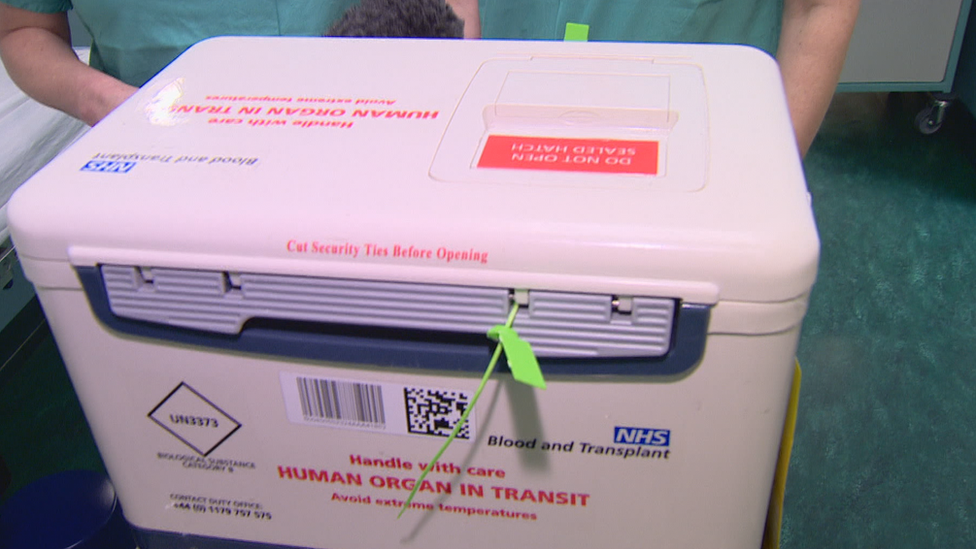
A Scottish government consultation on the organ donation changes found 82% of respondents in favour of the move
More than half of Scotland's population have registered to donate their organs or tissue after their death - the highest rate in Britain.
Mr Fitzpatrick said the bill was part of a range of measures aimed at boosting donations, saying it was "important that we do all we can to improve the lives of those on the waiting list".
He said: "Organ and tissue donation can be a life-changing gift. Evidence shows that opt-out systems can make a difference as part of a wider package of measures and this bill provides further opportunities to both save and improve lives."
Holyrood considered an opt-out system in the previous parliamentary term, but narrowly rejected a member's bill from Labour's Anne McTaggart due to "serious concerns" about the "practical impact of the specific details".
Three MSPs voted against the current bill, with one - SNP backbencher Christine Grahame - voicing concerns about the wording of the bill.

'Another shot at life'
The heart transplant that changed Harry's life
Studying for his Highers in 2011, 16-year-old Harry Prentice could not shake a breathlessness and lethargy which left him falling asleep at all times of the day.
Within minutes of a visit to his GP, he was on his way to hospital and the eventual diagnosis was that his heart was twice the size it should be, and failing.
"It was a shock, I was a 16-year-old guy - fit as a fiddle - and thought I was fine, invincible like you do at that age," explained Harry.
The new norm for Harry, who lives near Lanark, was then endless journeys to and from hospital as he waited for a heart transplant.
He continued: "Once you're on the waiting list it really makes you think about the situation you're in - you think, am I going to be here in five years time? And so you start thinking about your life and what is planned."
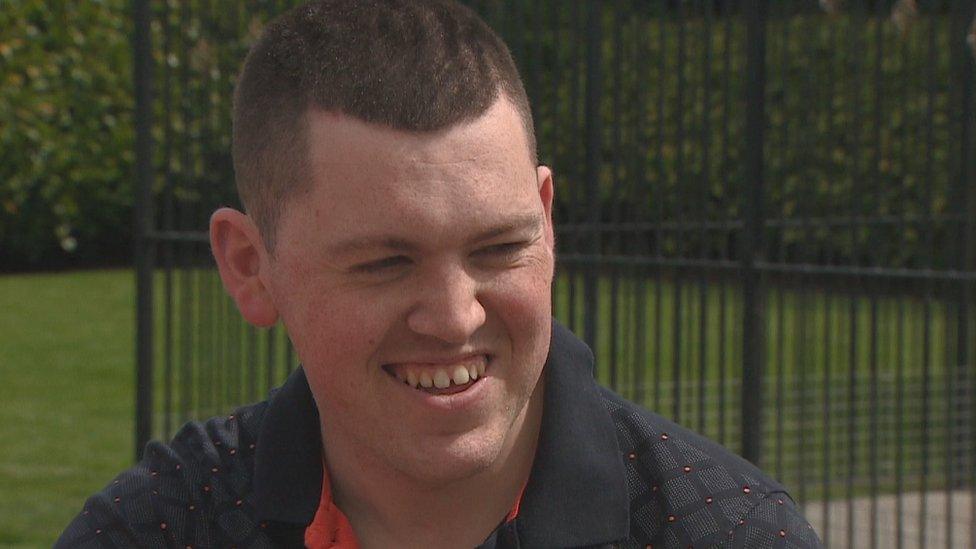
Harry received treatment at the Golden Jubilee hospital in Clydebank
Harry was fitted with an an artificial heart pump which allowed him to continue with life for two years until further complications developed. He was eventually found a transplant in June 2013 with the team operating from the Golden Jubilee hospital in Clydebank.
Complications during surgery meant Harry suffered a severe stroke and has had years of rehabilitation since, but the 24-year-old says he is delighted the transplant has given him another shot at life.
He said: "There was relief when the news came through and a little bit of sadness knowing someone had died, but grateful they had decided to donate and that they were going to pass on the organs to let me live.
"This law change has been a long time in the waiting and will be good for the country."
- Published10 September 2017
